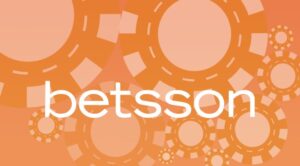Key Moments:
- Foreign gambling websites have continued to target Icelandic residents despite legal restrictions
- Recent studies estimate that one percent of the population deals with serious gambling addiction, with another two to three percent at risk
- Iceland’s current laws and prevention measures remain limited, as calls for more robust regulation continue
A Dramatic Shift to Online Betting
Gambling behaviors in Iceland have changed significantly over the past decade. Where once regulated environments kept most betting in check, advances in technology and the spread of mobile devices have moved much of the action online. These foreign-operated gambling sites, accessible to anyone with internet access, do not hold Icelandic licenses but have become deeply embedded in daily life through digital marketing and social media.
EUDA raises concerns about teenage gambling patterns in Europe, with 23% of students gambling for money. 5% show problematic gambling behavior. Italy, Iceland, and Greece have highest participation rates. #EUDA #TeenageGambling #YouthRiskPrevention #ProblemGambling… pic.twitter.com/txzPi4LUzw
— Focus Gaming News (@FocusGamingNews) October 24, 2025
Concerns Around Public Health
Experts have consistently highlighted the dangers associated with online gambling. Factors such as constant accessibility, digital immersion, and the impersonal nature of virtual transactions compound the risks. These environments often foster patterns that make it easier for individuals to become trapped in cycles of loss and compulsion.
Impact on the Icelandic Population
According to current research, about one percent of Icelanders are believed to be battling severe gambling addictions, with another two to three percent exhibiting early warning signs. In a smaller population, these percentages translate into thousands of affected individuals, many of whom struggle in silence, reluctant to reveal their difficulties to those around them.
Rehabilitation professionals report that most clients presenting with gambling-related issues attribute their troubles primarily to online gambling exposure. Often, a casual habit quickly progresses into financial hardship and significant personal consequences.
The Human and Social Cost
The consequences of compulsive gambling reach far beyond financial setbacks. Individuals coping with addiction frequently encounter an array of mental health challenges, including anxiety, severe depression, and even suicidal ideation. These struggles can ripple out, affecting families and social networks deeply and persistently.
Legal Framework and Enforcement Gaps
Iceland’s legislative response to the spread of online gambling has proved largely ineffective. The law, initially enacted in 2005, forbids foreign betting operators from engaging Icelandic players. Nonetheless, enforcement is sparse. Gambling websites remain accessible, and their promotional activities target local audiences without meaningful intervention, making it nearly impossible to shield vulnerable players.
| Key Issues | Status |
|---|---|
| Enforcement of existing laws | Minimal |
| Access to foreign sites | Mostly unblocked |
| National prevention campaigns | Limited or nonexistent |
Lack of Coordinated Response
Calls for a unified public health strategy have not yet prompted significant government action. There is currently no dedicated authority or specialist role in the health sector to address gambling-related harm. As a result, options for support and prevention remain scarce, and many individuals contend with their struggles outside the reach of comprehensive assistance or accountability.
Outlook for Stakeholders
The ongoing surge in online gambling has introduced serious challenges for regulators and health providers alike. Without a clear regulatory framework or national strategy, Iceland’s battle with hidden, digital gambling addiction is likely to escalate, leaving many to navigate its dangers with minimal support.
- Author


